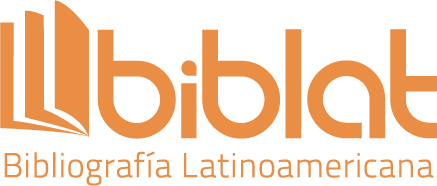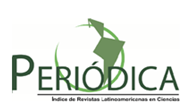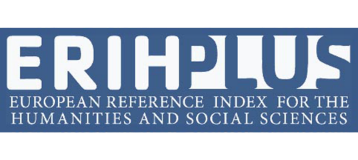Una revisión sobre metacognición. Algunas implicaciones para los procesos educativos
DOI:
https://doi.org/10.37511/tesis.v16n1a5Resumen
Antecedentes: Enseñanza y aprendizaje son actividades cognitivas que se construyen en la interacción entre profesores y estudiantes; su fortalecimiento está relacionado con el conocimiento y la regulación de la actividad mental; por esto, resulta estratégico comprender y promover las dinámicas metacognitivas en el aula. Objetivos: evidenciar la evolución conceptual del término cognición durante las últimas décadas y articular las principales perspectivas teóricas sobre las relaciones entre cognición y metacognición. Metodología: Esta revisión surgió de la interpretación de tendencias, acuerdos y desacuerdos en textos publicados en revistas indexadas, con énfasis en revistas internacionales y handbooks de dos bases de datos internacionales: Scopus, en inglés, y Redalyc, en español. Resultados: En la primera parte, se presentan las tres principales tendencias teóricas sobre la cognición y, en la segunda parte, la evolución del término metacognición, durante las últimas cuatro décadas, en una doble perspectiva: los más relevantes cambios conceptuales de la metacognición entendida como fenómeno individual y como fenomeno social. Conclusiones: profesores y estudiantes pueden cumplir un papel decisivo en la resolución de tareas y compromisos académicos, si se comportan como agentes metacognitivos, es decir, si fortalecen sus habilidades y disposiciones de regulación compartida de la cognición. Este tipo de interacción ha mostrado resultados significativos en el aprendizaje de matemáticas, lectura, escritura y ciencias naturales; además, beneficia a profesores y estudiantes de la educación básica y la educación superior, porque fortalece sus procesos cognitivos en el manejo de información y conocimiento.
Descargas
Referencias
Acosta, D.A., Vasco, C.E (2013). Habilidades, competencias y experticias: más allá del saber qué y el saber cómo. Bogotá: Unitec, CINDE, Universidad de Manizales.
Adams, F. (2018). Cognition wars. Studies in History and Philosophy of Science. 68, 20-30.
Baker, L. (1989). Metacognition, Comprehension Monitoring and the Adult Reader. Educational Psychology Review,1(1), 3-38. https://doi.org/10.1007/BF01326548
Baker, L. & Brown, A. L. (1984). Cognitive monitoring in Reading. In J. Flood, (Eds.), Understanding Reading Comprehension: Cognition, Language and the Structure of Prose (pp. 21-43). Delaware: I.R.A.
Beers, P.J., Kirschner, P.A., Boshuizen, H.P.A., & Gijselaers, W.H. (2005). Coercing knowledge construction in collaborative learning environments. In T. Koschmann, D. Suthers & T-W. Chan (Eds.), Computer Supported Collaborative Learning 2005: The Next 10 Years! Proceedings of the International Conference on Computer Supported Collaborative Learning (pp. 8-17). Taipei: Editorial.
Bueno, D. (2017). Neurociencia para educadores. Barcelona: Octaedro.
Calvo, P. & Gomila, T. (2008). Handbook of cognitive science. An embodied approach. Ámsterdam: Elsevier.
Campo, K., Escorcia, D., Moreno, M. & Palacio, J. (2016). Metacognición, escritura y rendimiento académico en universitarios de Colombia y Francia. Avances en Psicología Latinoamericana, 34(2), 233-252. http://dx.doi.org/10.12804/apl34.2.2016.03
Chan, C.K.K. (2012). Co-regulation of learning in computer-supported collaborative learning environments: a discussion. Metacognition Learning 7, 63–73. https://doi.org/10.1007/s11409-012-9086-z
Chekwa, E., McFadden, M., Divine, A., & Dorius, T. (2015). Metacognition: Transforming the Learning Experience. Journal of Learning in Higher Education,11(1), 109-112. https://eric.ed.gov/?id=EJ1141767
Chi, M. (1987). Representing knowledge and metaknowledge: implications for interpreting metamemory research. In F. Weinert, & R. Klowe, (Eds.), Metacognition, Motivation and Understanding (pp. 239-264). Broadway: Lawrence Erlbaum Associates, Inc.
Chomsky, N. (1957). Syntactic Structures. The Hague: Mouton.
Crespo, N. M. (2004). La Metacognición: Las diferentes vertientes de una Teoría. Revista Signos 33(48) 97-115. http://dx.doi.org/10.4067/S0718-09342000004800008
Cubukcu, F. (2009). Metacognition in the classroom. Procedia Social and Behavioral Sciences 1, 559–563. https://doi.org/10.1016/j.sbspro.2009.01.101
Damasio, A. (1999). El error de Descartes. La emoción, la razón y el cerebro humano. Santiago de Chile: Crítica – Editorial Andrés Bello.
De Vega, M. (1995). Introducción a la psicología cognitiva. Salamanca: Alianza Editorial
Duncan, S.E., & De Avila, E.A. (1979). Bilingualism and cognition: Some recent findings. NABE Journal,4,(1), 15-50. https://doi.org/10.1080/08855072.1979.10668370
Fierro, M. (2011). El desarrollo conceptual de la ciencia cognitiva. Parte I. Revista Colombiana de Psiquiatría, 40(3), 519-533. https://www.redalyc.org/pdf/806/80622315011.pdf
Flavell, J. H. (1979). Metacognitive and Cognitive Monitoring: A New Area of Cognitive-Developmental Inquiry. American Psychologist, 34, 906-911. https://doi.org/10.1037/0003-066X.34.10.906
Flavell, J.H. (1987). Speculations about the nature and development of metacognition. In F. Weinert, & R. Kluwe (Eds.), Metacognition, motivation and understanding (pp. 21–29). Hillsdale: Erlbaum.
Flavell, J. H. (2004). Theory-of-Mind Development: Retrospect and Prospect. Merrill-Palmer Quarterly, 50(3), 274–290. http://eric.ed.gov/?id=EJ683875
Frith, C.D. (2012). The role of metacognition in human social interactions. Phil. Trans. R. Soc. 367, 2213-2223. https://doi.org/10.1098/rstb.2012.0123
Gallagher, S. (2008). Understanding Others: Embodied Social Cognition. En P. Calvo y T. Gomila (Eds), Handbook of cognitive science. An embodied approach (pp. 439-452). Amsterdam: Elsevier.
Garello, M. V., Rinaudo, M.C. (2012). Características de las tareas académicas que favorecen el aprendizaje autorregulado y la cognición distribuida en estudiantes universitarios. Revista de Docencia Universitaria, 10(3), 415 – 440. http://red-u.net/redu/files/journals/1/articles/368/public/368-1672-1-PB.pdf
Garrison, D. R. y Akyol, Z. (2015). Toward the development of a metacognition construct for communities of inquiri. Internet and Higher Education 24, 66–71. DOI: 10.1016/j.iheduc.2012.11.005
Goos, M.; Galbraith, P.; and Renshaw, P. (2002). Socially mediated metacognition: Creating collaborative zones of proximal development in small group problem solving. Educational Studies in Mathematics 49, 193–223. https://doi.org/10.1023/A:1016209010120
Gutiérrez, F. (2005). Teorías del desarrollo cognitivo. Madrid: McGraw Hill.
Hermitaa, M., Thamrinb, W.P. (2015). Metacognition Toward Academic Self-Efficacy Among Indonesian Private University Scholarship Students. Procedia - Social and Behavioral Sciences 171, 1075 – 1080. http://doi.org/10.1016/j.sbspro.2015.01.268
Hertzog, C., & Dixon, R. (1994). Metacognitive development in adulthood and old age. In J. Metcalfe & A. Shimamura (Eds.), Metacognition: Knowing about knowing (pp. 227 – 251). Cambridge: Bradford.
Iiskala, T., Vauras, M. & Lehtinen, E. (2004). Socially-shared Metacognition in Peer Learning? Hellenic Journal of Psychology, 1,147-178. https://www.researchgate.net/publication/270789757_Iiskala_T_Vauras_M_Lehtinen_E_2004_Socially-shared_Metacognition_in_Peer_Learning_Hellenic_Journal_of_Psychology_1_2_147-178
Larkin, S. (2009). Socially mediated metacognition and learning to write. Thinking Skills and Creativity, 4, 149–159. http://doi.org/10.1016/j.tsc.2009.09.003
Lee, A., O’Donnell, A., Kempler Rogat, T. (2015). Exploration of the cognitive regulatory sub-processes employed by groups characterized by socially shared and other-regulation in a CSCL context. Computers in Human Behavior, 52, 617-627. http://dx.doi.org/10.1016/j.chb.2014.11.072
Lutz, A. & Thompson, E. (2003). Neurophenomenology. Integrating Subjective Experience and Brain Dynamics in the Neuroscience of Consciousness. Journal of Consciousness Studies, 10, (9–10), 31–52. https://psycnet.apa.org/record/2004-13363-004
Martí, E. (1995). Metacognición: Entre la fascinación y el desencanto. Infancia y Aprendizaje, 72, 9-32. https://dialnet.unirioja.es/servlet/articulo?codigo=48514
McCabe, J. (2011). Metacognitive awareness of learning strategies in undergraduates. Mem Cogn 39, 462–476. DOI: 10.3758/s13421-010-0035-2
Medler, D. (1998). A brief history of connectionism. Neural Computing Surveys, 1 (2), 18-73.
Monereo, C. (1995). Enseñar a conciencia: ¿Hacia una didáctica metacognitiva? Aula de Innovación Educativa, 34, 74-80. http://www.quadernsdigitals.net/datos_web/hemeroteca/r_57/nr_625/a_8477/8477.pdf
Montealegre, R. (2007). La solución de problemas cognitivos. Una reflexión cognitiva sociocultural. Avances en Psicología Latinoamericana, 25(2), 20-39. https://revistas.urosario.edu.co/index.php/apl/article/view/1205/1073
Morgado, I. (2015). La fábrica de las ilusiones. Conocernos más para ser mejores. Barcelona: Ariel.
Mortimer, E., & Wertsch, J. (2003). The architecture and dynamics of intersubjectivity in science classrooms. Mind, Culture and Activity, 10(3), 230-244. https://doi.org/10.1207/s15327884mca1003_5
Paz, P. H. (2011). ¿Cómo desarrollar la metacognición en la educación superior mediante la resolución de problemas? Ingeniería e investigación, 31(1), 213-223. http://www.scielo.org.co/scielo.php?script=sci_arttext&pid=S0120-56092011000100022&lng=en&nrm=iso
Pescetelli, N., Rees, G., & Bahrami, B. (2016). The Perceptual and Social Components of Metacognition. Journal of Experimental Psychology, 145, (8), 949–965. https://www.cs.helsinki.fi/u/ahyvarin/teaching/niseminar3/papers/Sebanz.pdf
Piaget, J. (1985). La toma de conciencia. Madrid: Ediciones Morata S.A.
Sebanz, N., Bekkering, H. and Knoblich, G. (2006). Joint action: bodies and minds moving together. Trends in Cognitive Sciences 10(2), 70–76. http://doi.org/ 10.1016/j.tics.2005.12.009
Shannon, C. E. (1948). A mathematical theory of communication. Bell System Technical Journal 27 (379-423 and 623-656). doi:10.1002/j.1538-7305.1948.tb01338.x.
Shea, N., Boldt, A., Bang, D., Yeung, N., Heyes, C. & Frith, C. D. (2014). Supra-personal cognitive control and metacognition. Trends in Cognitive Sciences, 18(4), 186-193. https://doi.org/10.1016/j.tics.2014.01.006
Silenzi, M. I. (2015). Enfoques postcognitivistas: rótulos, presupuestos y posibles lecturas. Ludus Vitalis, 23(43), 277-288. https://www.researchgate.net/publication/325924729_Enfoques_postcognitivistas_rotulos_presupuestos_y_posibles_lecturas
Snyder J.J., Wiles, J.R. (2015). Peer Led Team Learning in Introductory Biology: Effects on Peer Leader Critical Thinking Skills. PLOS ONE 10(1), e0115084. doi:10.1371/journal.pone.0115084
Spruce, R. & Bol, L. (2014). Teacher beliefs, knowledge, and practice of self-regulated learning. Metacognition Learning, 10(2), 245–277. https://doi.org/10.1007/s11409-014-9124-0
Stewart, J. (2019). Neurophenomenology, Enaction, and Autopoïesis. In: Palermo, S. and R. Morese, R. (Eds). Behavioral Neuroscience (pp. 1-8). IntechOpen, https://doi.org/10.5772/intechopen.85262
Tartas, V., Baucal, A. & Perret-Clermont, A.N. (2010). Can you think with me? The social and cognitive conditions and the fruit of learning. En K. Littleton & C. Howe (Eds.), Educational dialogues. Understanding and promoting productive interaction (pp. 64-82). Oxon: Routledge.
Terborg, R. & Velázquez, V. (2019). Common Knowledge in Conversation of Bilinguals and the Ecology of Pressures. The Complex Processes of Using Language and Learning to Coordinate Actions with Other Speakers. In: Massip-Bonet À., Bel-Enguix G., Bastardas-Boada A. (Eds.), Complexity Applications in Language and Communication Sciences (pp. 171-183). Springer, Cham. Switzerland.
Tullis, J. G. and Fraundorf, S. H. (2017). Predicting others’ memory performance: The accuracy and bases of social metacognition. Journal of Memory and Language, 95(1), 124-137. https://doi.org/10.1016/j.jml.2017.03.003
Van De Bogart, K.L.; Dounas-Frazer, D.R.; Lewandowski, H.J. and Stetzer, M.R. (2017). Investigating the role of socially mediated metacognition during collaborative troubleshooting of electric circuits. Physical Review Physics Education Research 13(2), 1-19. https://doi.org/10.1103/PhysRevPhysEducRes.13.020116
Varela, F., Thompson, E., Rosch, E. (1997). De cuerpo presente. Las ciencias cognitivas y la experiencia humana. Barcelona: Editorial Gedisa..
Varela, F. (2005). Conocer. Las ciencias cognitivas: Tendencias y perspectivas. Cartografía de las ideas actuales. Barcelona: Editorial Gedisa.
Vygotsky, L. (2000). El desarrollo de los procesos psicológicos superiores. Barcelona: Crítica.
Wilson, N.S., Bai, H. (2010). The relationships and impact of teachers’ metacognitive knowledge and pedagogical understandings of metacognition. Metacognition Learning 5, 269–288. https://doi.org/10.1007/s11409-010-9062-4
Woolley, A.W., Chabris, C.F., Pentland, A., Hashmi, N. & Malone, T.W. (2010). Evidence for a Collective Intelligence Factor in the Performance of Human Groups. Science, 330, 686-688. https://doi.org/ 10.1126/science.1193147
Zegarra-Valdivia, J., Chino, V., B. (2017). Mentalización y teoría de la mente. Rev Neuropsiquiatr 80(3). http://dx.doi.org/10.20453/rnp.v80i3.3156
Descargas
Publicado
Número
Sección
Licencia

Esta obra está bajo una Licencia Creative Commons Atribución-NoComercial-















